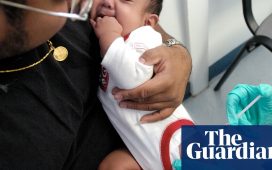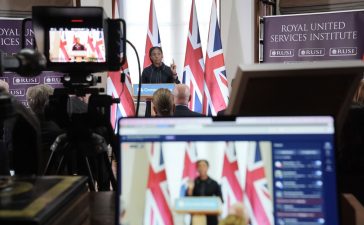A woman who stood up against her community and refused to be a female genital mutilation “cutter” is launching a campaign to protect tens of thousands of girls who are at renewed risk of female circumcision in her home country, the Gambia.
Maimouna Jawo, 50, who was herself subjected to FGM, has recently been granted leave to remain in the UK by the Home Office after more than a decade of waiting.
From her attic room in Hounslow she is launching a campaign on Facebook in Mandinka, the most commonly spoken language in her country, to reach a new generation of girls and raise the alarm about the dangers of FGM.
She is also keen to reach their mothers and fathers and says that many Gambian men enthusiastically back the practice. The UN Population Fund and Unicef are jointly leading a global programme to speed up the elimination of FGM, to which an estimated 230 million girls and women worldwide have been subjected.
The severe damage mutilating female genitals causes to psychological and physical health has been widely documented.
While an asylum seeker in the UK, Jawo appeared in a BBC documentary, made more than a decade ago by the Sue Lloyd Roberts, in which the late journalist remonstrated with an imam in the Gambia about false claims he made about women’s clitorises.
Laws were passed in the Gambia in 2015 outlawing FGM, at least in part thanks to the documentary and Jawo’s brave decision as a victim and someone who refused to become a cutter, to speak out on camera.
Jawo comes from generations of cutters and was told from the age of 12 that it was her destiny to continue the work carried out by her grandmother and her mother. She began her training at the age of 15, and was expected to miss school when she was needed to hold down girls while the adult cutters carried out FGM.
Although the passing of the laws did not eliminate the practice, it was a step in the right direction. In the Gambia, an estimated 73% of women aged 15-49 have been subjected to FGM.
But as Jawo sends a social media SOS to those at risk in her home country, the Gambian government is considering overturning the FGM ban.
It was when Jawo was forced to assist the cutter of her own five-year-old daughter that she silently vowed she would never carry out FGM, even if refusing put her life at risk.
“My daughter was screaming for mum while she was being cut but it was mum who was holding her legs down,” said Jawo.
She fled to the UK and claimed asylum. When her asylum appeal was heard recently the BBC documentary featuring Jawo was screened in court.
“I have been fighting against FGM for so long and now there is a chance the FGM ban in my country could be overturned I feel like my fight is going back to the beginning,” she said.
Jawo is working covertly with a group of women in some of the villages in the Gambia to raise awareness about the dangers of FGM and the damage it can cause, and hopes to build a powerful force on the ground to stand up and say no to the practice.
“Now that I have my refugee status in the UK it’s very important for me to get up and do something about what I happening with FGM in my country. What is happening now in Gambia is very scary. Whatever the government does about FGM I will stand where I stood yesterday and where I stand today and where I will always stand on this. My message continues to be: ‘say no to FGM’.”









